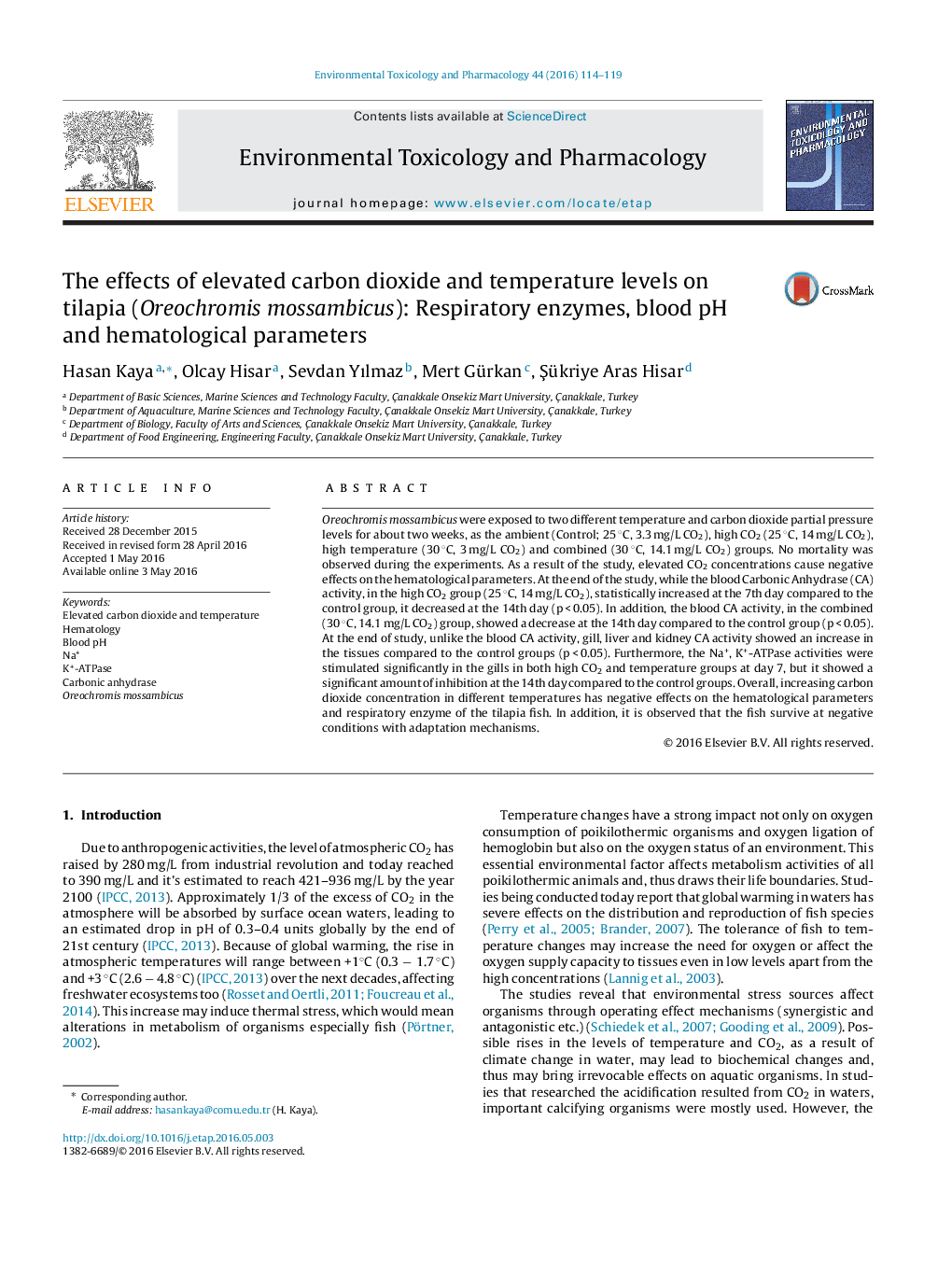| کد مقاله | کد نشریه | سال انتشار | مقاله انگلیسی | نسخه تمام متن |
|---|---|---|---|---|
| 2582795 | 1561700 | 2016 | 6 صفحه PDF | دانلود رایگان |
• Elevated CO2 and temperature levels have negatively affected to the hematological parameters.
• The Na+, K+-ATPase activity were inhibited in both high CO2 and temperature groups at day 14.
• The fish compensate to negative conditions with its adaptation mechanisms.
Oreochromis mossambicus were exposed to two different temperature and carbon dioxide partial pressure levels for about two weeks, as the ambient (Control; 25 °C, 3.3 mg/L CO2), high CO2 (25 °C, 14 mg/L CO2), high temperature (30 °C, 3 mg/L CO2) and combined (30 °C, 14.1 mg/L CO2) groups. No mortality was observed during the experiments. As a result of the study, elevated CO2 concentrations cause negative effects on the hematological parameters. At the end of the study, while the blood Carbonic Anhydrase (CA) activity, in the high CO2 group (25 °C, 14 mg/L CO2), statistically increased at the 7th day compared to the control group, it decreased at the 14th day (p < 0.05). In addition, the blood CA activity, in the combined (30 °C, 14.1 mg/L CO2) group, showed a decrease at the 14th day compared to the control group (p < 0.05). At the end of study, unlike the blood CA activity, gill, liver and kidney CA activity showed an increase in the tissues compared to the control groups (p < 0.05). Furthermore, the Na+, K+-ATPase activities were stimulated significantly in the gills in both high CO2 and temperature groups at day 7, but it showed a significant amount of inhibition at the 14th day compared to the control groups. Overall, increasing carbon dioxide concentration in different temperatures has negative effects on the hematological parameters and respiratory enzyme of the tilapia fish. In addition, it is observed that the fish survive at negative conditions with adaptation mechanisms.
Figure optionsDownload as PowerPoint slide
Journal: Environmental Toxicology and Pharmacology - Volume 44, June 2016, Pages 114–119
